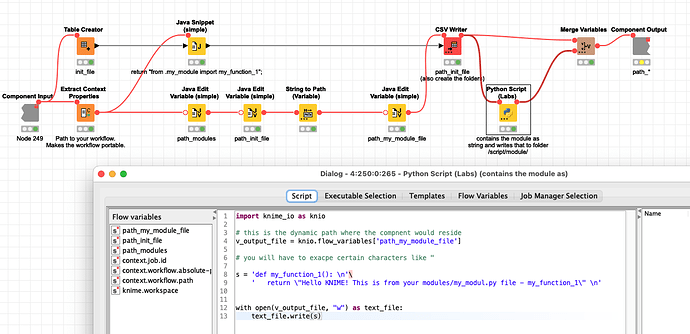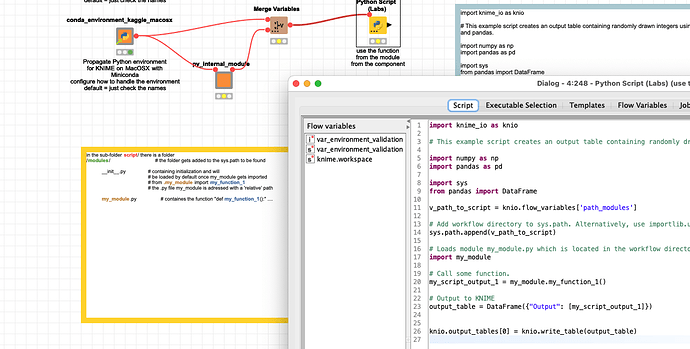@Kaegan well, well. I came up with this ‘solution’ though it is not a very nice one. The component would write .PY file(s) with functions dynamically to a local folder of the workflow.
The code itself would be written into a string variablen and then be exported to a local file so all logic can be stored within the component … in a way … There also is a init file to mark the module. Adapting from this workflow with individual .PY files.
The created module with init file and .PY file will then be imported via the sys-path idea.
Not sure if this is a solution you would want to roll out. But it does work in general.

